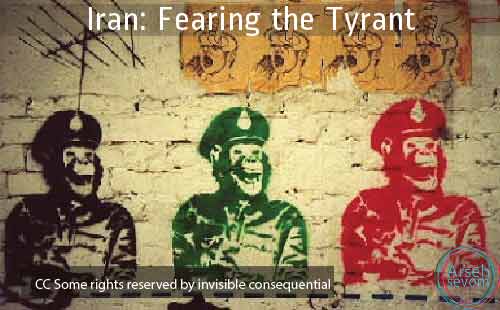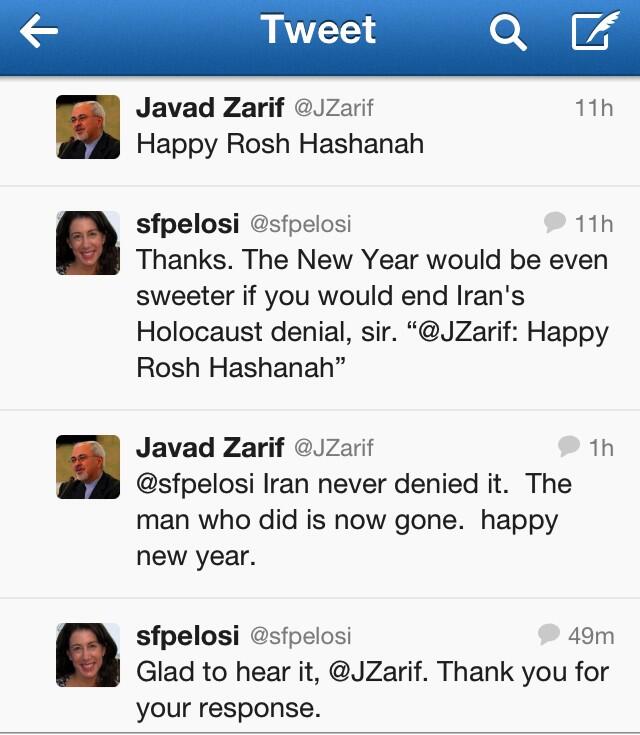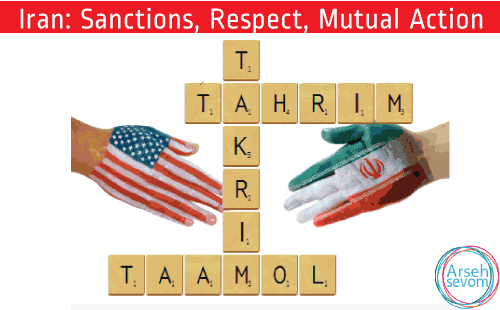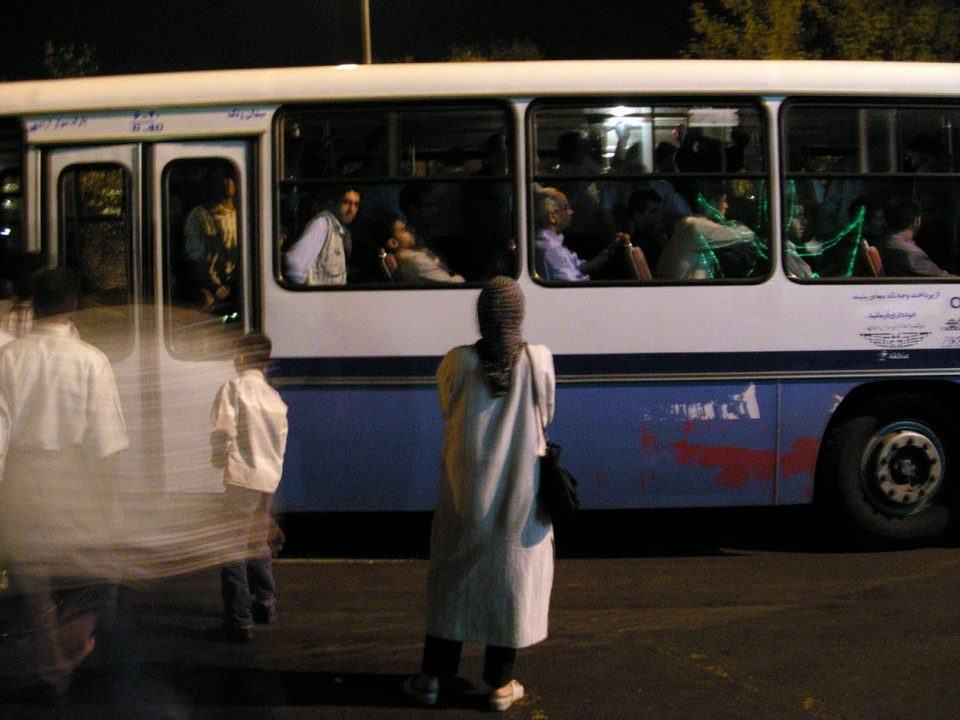
Iran — Fearing the Tyrant Not the Change
September 3, 2013
Just Access Campaign Launches
September 15, 2013Arseh Sevom–While the war in Syria may become an international war soon, Iran and America have been engaged in some pre-diplomatic word games. Will Ta’amol, the Persian word for mutual action, enter the language the way that the Russian word Glasnost (openness) has? A European Court ruling has challenged the inclusion of seven Iranian companies on the sanctions list. Rouhani is looking at tourism (Glasnost?) as a way of growing Iran’s feeble economy, and a Singaporean photographer may prove to be the new industry’s unofficial spokesperson. Workers in Iran suffer the combined effects of bad policy and economic sanctions. Finally, Iran’s foreign minister tweets Rosh Hashana wishes.
By Peyman Majidzadeh
Sanctions, Respect, Action — Tahrim, Takrim, Ta’amol
It was almost two years ago that US State Department appointed Persian-language spokesperson Alan Eyre, in an attempt to address Iranians in their mother tongue. The government official, who fell in love with Iranian language and culture in university days, still reads Iranian books and watches Iranian movies. A week ago, he had an interview with Iranwire [fa] in Persian. Mr. Eyre emphasized that the US will continue its “pressure and negotiation” policy (does he mean carrot and stick?). He also stated that sanctions will not be lifted because of a few words; rather, they require action to be removed. Using Persian proverbs, he called the process “very easy” and explained that Iran needs to cooperate with the IAEA and the International Community on its nuclear issue.
About a month ago, Hassan Rouhani said during his inauguration ceremony [en] that the US should not speak with Iran in the language of sanctions (tahrim), rather speak in the language of respect (takrim). Now, Alan Eyre demands the language of mutual action (ta’amol). Let’s hope the language-selection phase is soon over, resulting in the choicest words, accompanied with even better actions.
Sanction Exemptions and Annulments: Hope for Better Days?
According to the US reports, the European Union had not imported oil from Iran since July 2012. As a result, the United States allowed eleven countries to legally import Iranian crude for a six-month period. The countries are: Belgium, the Czech Republic, France, Germany, Greece, Italy, Netherlands, Poland, Spain, Britain, and Japan. It might be only a consolation for countries who have obeyed US regulations, or it might show an improvement in Iran-America relations after all.
At the same time, the General Court (Fourth Chamber) of the European Union annulled EU’s sanctions on Good Luck Shipping LLC. The Court announced that it has not found evidence to show that the company has acted on behalf of the Islamic Republic of Iran Shipping Lines (IRISL). The court found insufficient evidence of the involvement of six other companies as well. These are indeed positive signs.
Iranland
Iran is a wonderful land, full of tourist attractions; yet the fact has not been properly acknowledged in the international scene for various reasons. Now, the new Iranian government is planning to open its gates to people from different countries and cultures. According to The New York Times [en], Rouhani wants to increase the number of tourists from four to ten million. This, according to him, will create four million employment opportunities and contribute to the economic well-being of the country.
Founding Iranian Tours is an attempt to satisfy the goal. The Tehran-based agency is aimed at arranging guided trips to ancient and cultural cities such as Yazd and Shiraz. This is, of course, a valuable plan and a positive step to introduce Iran’s identity to the world.
Iranian Beauty Captured on Camera
Mandy Tay, an award winning photographer from Singapore, made a recent trip to Iran and took a number of photos in different cities. She made a short video of her trip which she posted on Youtube. Tay describes her experience:
“A last minute decision turned into 2 weeks of friendship, passion and magic. Iran has showed me how to be friends without using a word, to hope without borders and to be free in love.”
The video attracted a large number of viewers in a short period. Watch it here.
I Can’t Believe I Read the Whole Thing
One of the activities performed by the Office of Foreign Assets Control (OFAC) is the publication of a list of individuals and companies owned or controlled by, or acting for or on behalf of, US-sanctioned countries. The Office also provides a list of sanctioned individuals and groups unrelated to a specific country. They are collectively called “Specially Designated Nationals” (SDNs). The US government blocks their assets and prohibits American citizens from doing business with them.
The new list has been published here. A number of Iranian names have been added. As you can see, the list is long, taking hours to be read. I can’t help but ask what happens if your name is there by mistake? Is there a way back to undo the damage in case of mistakes
Drop in Prices of Medicine
On Saturday August 1st, Hamshahri Newspaper dedicated its cover page [fa] to Iran’s healthcare situation. According to the report, the new head of the Iranian Food and Drug Organization, Dr. Dinarvand, has announced the allocation of 2400 Billion Tomans to the medical sector. It is hoped that this will result in a significant reduction in the price of medicine. In a similar report [fa], he said that the Organization has considered 1800 Billion Tomans for special drugs. If the Organization keeps the promises, it will be a big help for Iranian patients.
Negative Effects of Sanctions on Iranian Workers
Praxies [fa] spoke with Iranian labor activist Tika Kalaki. The interview focused on the lives of workers, labor unions, and the effects of sanctions. Kalaki argues that all three former presidents, Rafsanjani, Khatami, and Ahmadinejad took misguided measures which resulted in the current situation of workers. In his opinion, sanctions have multiplied the problems workers already face and now they need to become organized and form independent unions in order to effectively work towards solutions.
You can follow the Iranian workers’ voice in more details on their Facebook page.
After Facebook, Zarif Goes Viral on Tweeter

After his activities on Facebook, Iranian Foreign Minister Mohammad Javad Zarif has now opened his twitter account. On Thursday 5 September, he tweeted “Happy Rosh Hashanah” (Jewish new year) on his timeline. Christine Pelosi, daughter of Minority Leader of the United States House of Representatives Nancy Pelosi, replied to the tweet; saying that the new year would be even sweeter if Zarif ends Iran’s Holocaust denial. Zarif’s answer has received 1056 retweets and 1305 favorites till now: “Iran never denied it. The man who was perceived to be denying it is now gone. Happy New Year.”
As one Iranian twitter user added, “We are starting to smell change.”





